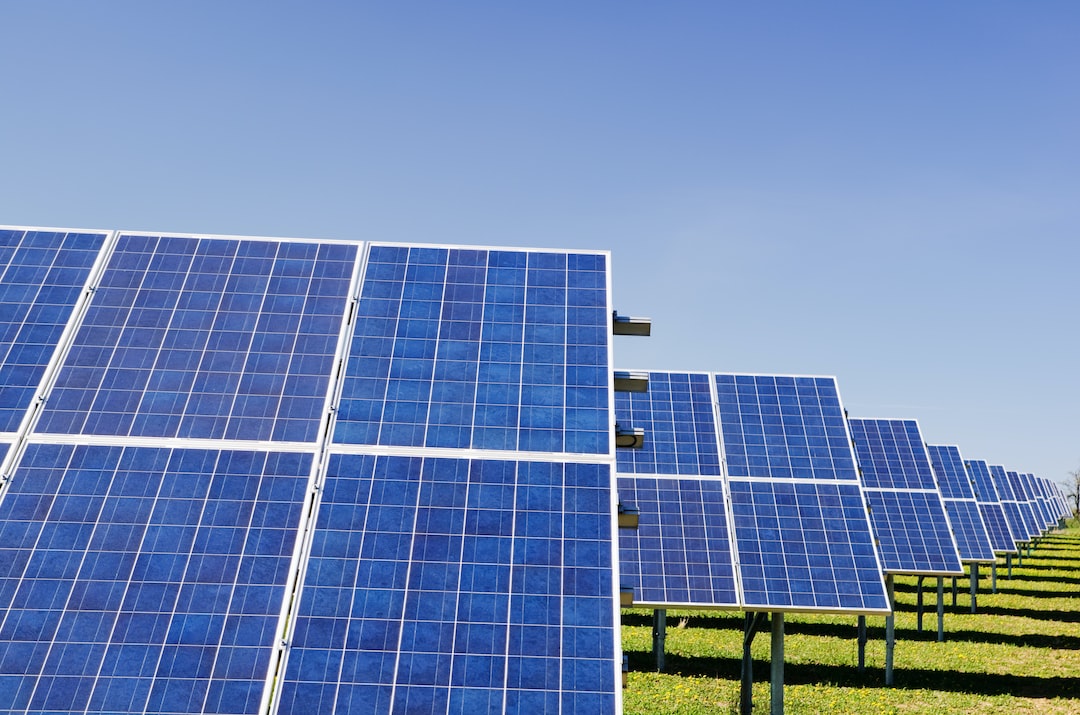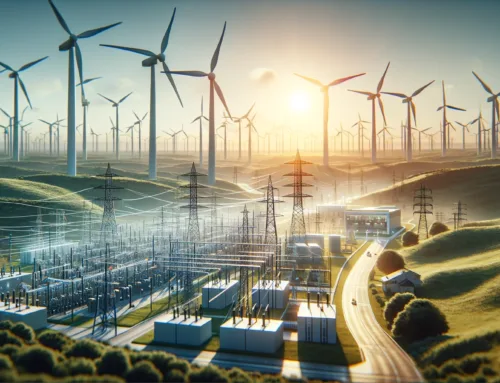Understanding the Terms, Conditions, and Possibility of Rate Increases
Fixed price energy contracts are agreements between consumers and energy suppliers that guarantee the cost of energy will not increase for a specific period of time (Fixed Rate) . Understanding the terms and conditions of these contracts is crucial to ensure that consumers are aware of their rights and obligations.
This article aims to provide comprehensive information about fixed price energy contracts, including their definition, terms and conditions, the possibility of rate increases, and whether fixed contracts can be subject to changes based on market conditions.
Fixed price energy contracts provide consumers with the benefit of predictable payments and potential savings. By locking in a fixed rate for a specified duration, consumers can budget their energy expenses more effectively and protect themselves from fluctuating prices in the energy market.
For example, let's say a consumer signs a two-year fixed price energy contract with a rate of £0.10 per kilowatt-hour (kWh). Regardless of any price increases in the energy market during that period, the consumer will continue to pay £0.10 per kWh for the duration of the contract.
What are Fixed Price Energy Contracts?
Fixed price energy contracts are agreements between consumers and energy suppliers where the unit price of gas and electricity remains the same for a specified duration, typically one to two years.
These contracts offer the benefit of predictable payments, allowing consumers to budget their energy expenses more effectively.
Additionally, fixed-rate deals may provide the opportunity for potential savings compared to default tariffs, especially when energy prices are expected to rise.
For example, let's say a consumer is currently on a default tariff with an energy rate of £0.40 per kWh.
They receive an offer from an energy supplier for a fixed price energy contract with a rate of £0.37 per kWh for the next two years. By switching to the fixed price contract, the consumer can save £0.03 per kWh on their energy bills, resulting in significant savings over the course of the contract.
Terms and Conditions of Fixed Rate Energy Contracts
To fully understand and benefit from fixed rate energy contracts, it is essential to review and comprehend the terms and conditions.
These may include the duration of the fixed price plan, any early exit fees if switching before the contract ends, and what plan the supplier will move the consumer to after the fixed price plan expires.
It is important to be aware of when the fixed price plan ends to avoid any unexpected changes in rates or plans. Additionally, consumers should consider any additional terms and conditions specific to their chosen energy supplier.
For example, let's say a consumer signs a two-year fixed rate energy contract. The terms and conditions state that if the consumer wishes to switch energy suppliers before the contract ends, they will incur an early exit fee of £50 or £300 if they are with the likes of Octopus.
Additionally, the contract specifies that after the fixed price plan expires, the consumer will be automatically moved to a variable rate plan.
By carefully reviewing the terms and conditions, the consumer can make an informed decision and avoid any surprises or penalties.
Possibility of Rate Increases during Fixed Price Energy Contracts
While fixed price energy contracts aim to provide stable rates, there are factors that may result in rate increases during the contract period.
Market conditions, such as volatile gas and carbon prices, reductions in wind and solar generation, and gas storage capacity shortages, can lead to rate increases.
These challenges faced by energy suppliers may make it difficult for them to maintain fixed prices as they navigate market fluctuations.
As a result, consumers may experience price increases during their fixed price energy contract, depending on these factors.
For example, let's say a consumer signs a one-year fixed price energy contract. During the contract period, there is a sudden increase in gas prices due to a shortage in supply.
As a result, the energy supplier is unable to maintain the fixed price and is forced to raise the rates for all consumers on fixed contracts. This increase in rates would affect the consumer's energy bills for the remaining duration of their contract.
Can a Fixed Price Energy Contract be Increased?
The term “fixed” in fixed price energy contracts has sparked a debate. Some argue that a fixed tariff contract cannot truly be called fixed if it is subject to changes based on market conditions.
However, these contracts often provide consumers with options if their energy supplier increases the rates during the contract period.
Customers may choose to leave the contract without penalties or remain on a higher fixed tariff. Therefore, while fixed price energy contracts may not guarantee absolute price stability, they do offer flexibility in response to rate changes.
For example, let's say a consumer is on a fixed price energy contract that is subject to a rate increase due to market conditions.
The consumer has the option to either accept the rate increase and continue with the contract or leave the contract without incurring any penalties.
If the consumer decides to leave the contract, they can explore other energy suppliers or tariff options that may offer more favorable rates.
This flexibility gives consumers the ability to adapt to changing market conditions and make informed decisions about their energy contracts.
Factors to Consider and Tips for Fixed Price Energy Contracts
When considering a fixed price energy contract, it is important to assess whether it will save money compared to the default tariff.
Consumers should also check for any exit fees before leaving a fixed tariff early.
To ensure energy costs do not increase, it is advisable to control energy usage through measures such as draught proofing, adjusting thermostats, and exploring energy-saving options like smart thermostats or generating energy through solar panels or wind turbines.
For example, let's say a consumer is considering switching to a fixed price energy contract. They should compare the rates offered in the fixed contract with the current default tariff to determine if there will be any cost savings.
Additionally, the consumer should check if there are any exit fees associated with the fixed contract in case they need to switch suppliers before the contract ends.
To further control energy costs, the consumer can implement energy-saving measures such as insulating their home and using energy-efficient appliances.
These actions can help reduce energy consumption and potentially lower energy bills.
Impact of Energy Price Cap on Fixed Energy Tariffs
The energy price cap is a regulation that sets a maximum price for customers on default tariffs. While the price cap is set to increase by 80% in October, fixed energy tariffs are not directly affected by this cap.
Therefore, customers on fixed tariffs can be assured that their rates will not increase due to the energy price cap.
For example, let's say there is an energy price cap in place that limits the maximum rate for default tariffs to £0.15 per kWh. However, a consumer is on a fixed price energy contract with a rate of £0.12 per kWh.
Even if the energy price cap increases to £0.18 per kWh, the consumer's rate will remain fixed at £0.12 per kWh for the duration of their contract.
This provides consumers with the peace of mind that their rates will not be affected by any changes in the energy price cap.
Forecasts on Future Energy Price Cap Increases
Forecasts suggest that the energy price cap could continue to rise significantly in the future. Factors contributing to these expected increases include wholesale gas and electricity costs, network costs, operating costs, and profit margins.
As a result, it is important for consumers to stay informed about potential future price cap increases and consider their options accordingly.
For example, let's say energy analysts predict that the energy price cap could increase by 10% annually over the next five years.
This forecast takes into account factors such as rising wholesale gas and electricity costs, increasing network charges, and higher operating costs for energy suppliers.
Consumers should be aware of these forecasts and evaluate whether a fixed price energy contract is a suitable option for them considering the potential future price cap increases.
By staying informed, consumers can make well-informed decisions and choose the energy contract that best aligns with their needs and financial situation.
Calls for Urgent Action to Address Rising Energy Prices
There have been calls for urgent action from the government to address rising energy prices. Ofgem's chief executive has warned about the potential worsening of prices, emphasizing the need for action.
The End Fuel Poverty Coalition has raised concerns about the impact of the new energy price cap on households and has called for emergency financial support and reform of the energy system.
These calls highlight the importance of addressing rising energy prices to ensure affordability and accessibility for consumers.
For example, let's say energy prices have been steadily increasing over the past few years, putting a strain on households' budgets. In response to this issue, there have been calls for the government to take urgent action to address rising energy prices.
Ofgem's chief executive has expressed concerns about the potential worsening of prices and the need for intervention to protect consumers.
The End Fuel Poverty Coalition has also raised concerns about the impact of the energy price cap on vulnerable households and has called for emergency financial support and reforms in the energy system.
These calls for action emphasize the importance of finding solutions to address rising energy prices and ensure that energy remains affordable and accessible for all consumers.





